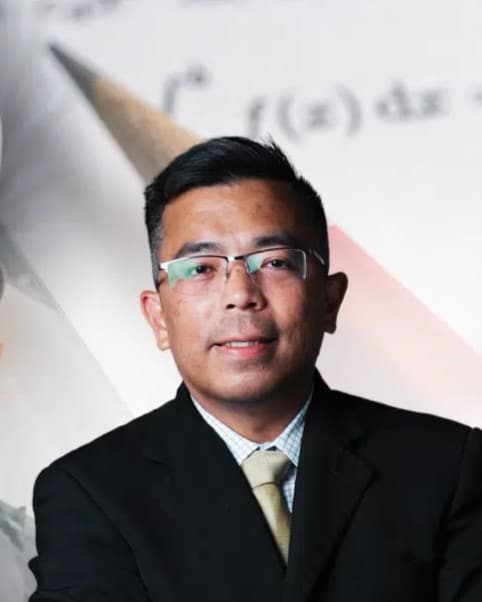“Assoc. Prof. Dr. Abdul Halim Abdullah, an academician at the Faculty of Educational Sciences and Technology (FEST), writes these humble reflections for himself and his respected students on the significance of UTM’s motto in our lives.”
One of the things I deeply cherish about working at Universiti Teknologi Malaysia (UTM) is its profound motto: In the Name of God for Mankind. To me, this is more than just a motto, it reflects the ultimate purpose of life. The world is a temporary abode, and every good deed we do here becomes an eternal investment for the hereafter.
According to the Department of Statistics Malaysia (DOSM), the average lifespan of Malaysians is 75.2 years. If one starts working at UTM at the age of 25 and retires at 60, that amounts to 35 years, almost half of one’s lifetime dedicated to serving this institution. Life is about cumulative efforts, and we hope that, at the end of our journey, we have collected enough good deeds in this world to be rewarded in the next.
As servants of the Creator, Muslims are required to perform Fardhu ‘Ain—personal obligations that each individual must fulfil. At the same time, Fardhu Kifayah, which refers to communal obligations, must also be carried out. In Islam, working is not merely about earning a living; it can also be a form of worship. When done with sincerity and in accordance with religious principles, work can be spiritually rewarding. This includes being honest, trustworthy, responsible, and producing quality work that benefits oneself, the family, and the wider community.
Returning to UTM’s motto, In the Name of God for Mankind—I see my role not only as a lecturer, academician, or researcher, but also as an educator of future educators. I do not claim to be perfect, but with the spirit of UTM’s guiding principle, I see this responsibility as a powerful means of accumulating rewards—like a river that continues to flow.
As a teacher educator, I carry the heavy responsibility of equipping my students with the necessary attributes for the teaching profession. They will face digital generations, evolving technologies, new pedagogical approaches, demanding parents, and more. Hence, I often remind them: Adab (courtesy) comes first. Scoring high marks means nothing if one fails to respect lecturers or others. I try to align everything I teach, both formally and informally, with the needs of today’s educational landscape. I consistently emphasise three key elements: knowledge, skills, and courtesy. This is because they align with the National Education Philosophy, which aims to produce holistic human capital—not only for future teachers themselves but also for the generations they will one day teach.
Knowledge, the cognitive component, is reflected in their academic performance and CGPA—something prospective employers look at first. Even though I serve as an academic advisor to only a portion of students, I regularly remind all of them to maintain or improve their CGPA. Teachers must master content knowledge, pedagogical knowledge, technological knowledge, and other less tangible knowledge not always covered in lectures. As such, I too must stay updated on dynamic educational issues to ensure what I teach remains relevant.
Skills are honed through various courses that develop pedagogical competence. In my lectures, for instance, students are introduced to multiple teaching and learning approaches that are practised through mock and micro-teaching sessions.
Courtesy, in my view, is perhaps the most important. One small but telling example is when a student sends an email with an attachment but without any message or greeting. I constantly remind them to be more courteous and mindful. As future teachers, they hold a crucial role in shaping the character of the next generation—a task that is increasingly challenging in today’s world.
In conclusion, I do not claim to be a perfect person, but I see training future teachers as a golden opportunity to do everything In the Name of God for Mankind. I strive to do my best, but ultimately, the responsibility lies with them. I sincerely hope that everything I have shared with them will be put into practice when they enter the classroom, because I truly believe that knowledge without action is like a tree that bears no fruit.

Assoc. Prof. Dr. Abdul Halim Abdullah
Faculty of Educational Sciences and Technology (FEST)
Universiti Teknologi Malaysia (UTM)



